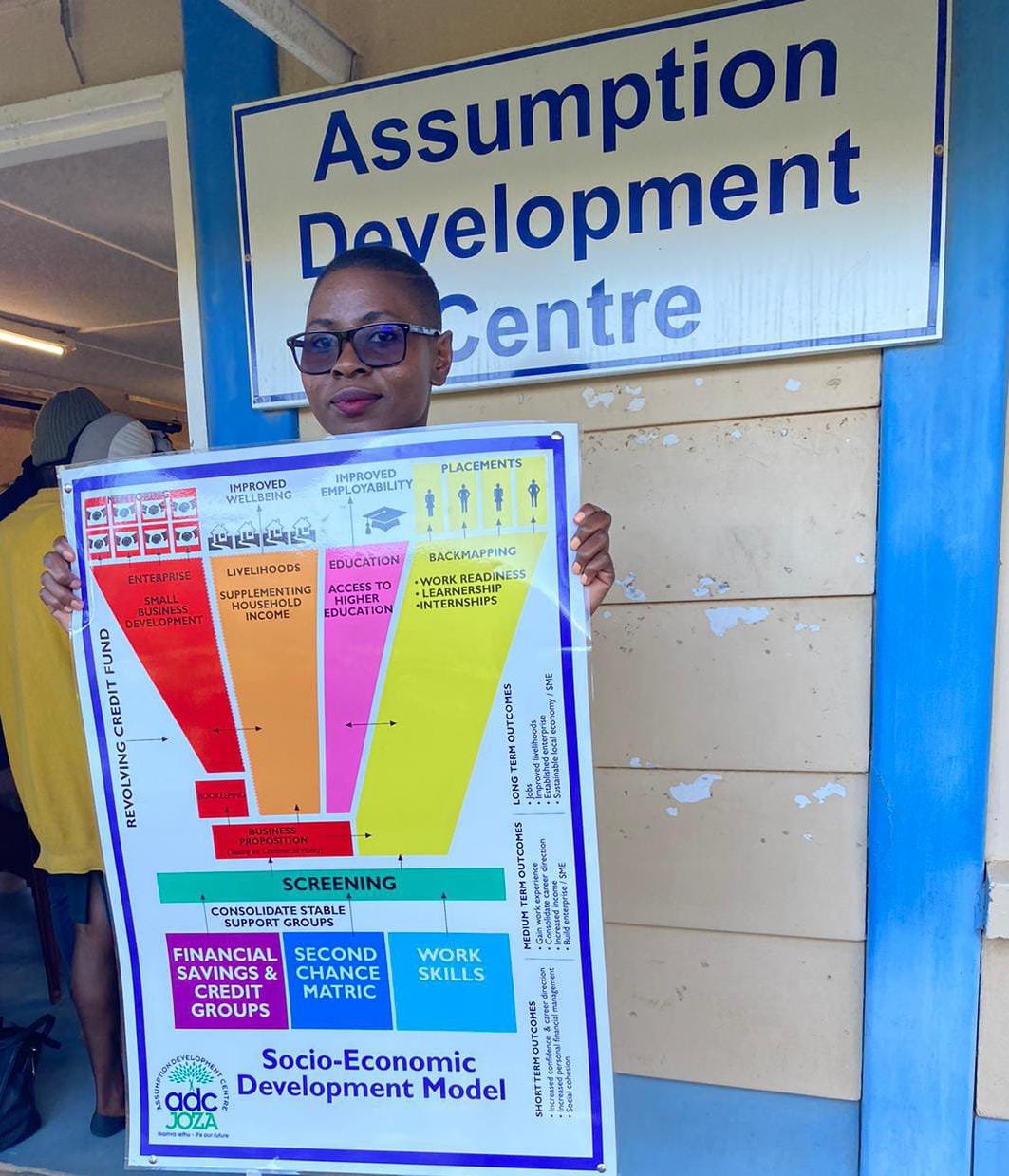Re-framing the Entrepreneurship Narrative



By: Emily Odhiambo
Almost everyone has a new year’s resolution and so did I. One of my resolutions, though not formed at the eve of the new year was to consider the expansion of this small packaging business that I am currently running back in the village market. Being a beneficiary of DREAMS Program and also a facilitator, I had a reasonable knowledge on financial literacy and some basic skills on Entrepreneurship, but I lacked the modern marketing and the Entrepreneurial leadership skills that one requires to make the idea sustainable. It occurred to me that I was one of the Norec Exchange participants in South Africa and as part of the Community engagement at Inkululeko, I got to meet Prof. Tshidi who later invited us to this Entrepreneurial Leadership and Marketing Workshop at Rhodes Business School.
For a very long time we have been living through a chronicle that has exalted entrepreneurship. A story that has been depicted in several business books like “Be a Winner” by Eric Parker, a narrative that has convinced people that could (and should) start businesses and become their own bosses especially when they are fed up and tired of being submissive to their employers in Cooperatives and any other work environment. Technology has brought us to an environment where anyone with love and passion for something can build business around it. The easily accessible resources like the internet has brought us to a world full of business ideas and opportunities giving us varieties of options to venture into in a business.
I find it interesting how people can quickly realize that they are not Louis C.K. (One of the World’s outstanding Comedian) who uses his sense of humor to make comics and make billions out of it or Robyn Rihanna who also makes billions with her singing talent but for some reason, get convinced that they can make good entrepreneurs and build a million-dollar business. According to Bruce Howard the Founder of Clientele’ Insurance Company, this is not only a waste of time but also a waste of resources. In his opinion, he mentions that Entrepreneurs are made but not born as most people would think and in layman’s language, as he puts it, an Entrepreneur is someone who starts and runs their own business, and with the right DNAs anyone can become one.
The three day bootcamp that was conducted by Prof.Bruce followed the principle that outlines what it takes to be a good entrepreneur. An ideology that, as opposed to our Entrepreneurship curriculum, focuses more on proper Business leadership and management that entails having the right DNAs to start and run a business successfully.
There were some very important things that I got to learn from the bootcamp and interestingly, the things that I thought were important for building a company may actually not be that important and vice versa.
Apart from the interesting Business workshop, to be mildly, it won’t be wrong to say that having dinner at around 3-4pm in the evening was quite normal to me due to the unpredictable load shedding (power outages) in South Africa. Never in a day did I sleep for less than 9 hours due to the flexible working hours at Inkululeko. This did not only stabilized my mental being but also made feel more productive even as I deliver to my peers and honestly, the exciting and productive 3 months of service at Inkululeko would not be forgotten easily.
Here are some of the quick ways of what you need start and run a successful business in this modern world:
You don’t need an Earth Shuttering Idea.
Often, what holds people back is that they do not think their idea is good enough. Surprisingly, every idea every entrepreneur ever had sounded silly in the beginning. Trust in your instincts and believe in what you have achieved in the past, back yourself and have confidence in it. The fact that no one has ever done it before has no bearing on its merit.
We fall into trap of waiting for the right time when in reality, there is never the right time. Starting a company is not easy. The fact is, you will never be ready.Ever. And if you wait for the ‘right time’ you will never jump because there will always be something that stops you.
Be inspired by David Hieatt who uses the analogy of the airplane on a runway during takeoff. Once it reaches a certain speed commonly referred to as V1, it has reached a point of no return. It can not be aborted; it has to take of or crash. He suggests that we have to make our own V1 markers then say ‘what the hell’ then jump.
Beg, Steal or Borrow.
Instead of searching for the magic beans, start with what is out there and then do it better. It may feel like settling for ‘less’ but its easier and safer. Soon it will evolve into something so much better.
Be a Magpie, always looking for something sparkly in the sunshine that you can use . You do not need to get a unique idea to start a business when you can borrow an idea and improve on it. Beg, borrow or steal (with your eyes).
As Austin Kleon points out in his book Steal as an Artist , nothing comes from nowhere . All these creative works builds on what came before . Nothing is completely original.
Borrow and improve!
You don’t need to look for solutions from others; find your own.
Do you still need to be supervised? By that I do not mean that you do not need to report to someone but they do not have to tell you what to do or worse, check if you have done it or even remind you to do it.
A good entrepreneur should be biased to action and ensure that work is done at all times. It takes no genius to tell entrepreneurs where the problem is since they are solution oriented and should be able to identify the problems by themselves.
The Dilemma of Success.
What does success loo like in a business? Well, this is a tough one right? The response to this might vary from one person to another but ideally, success is every little positive progress that you make in your business. Every company goes through a life cycle that is full of seasonal curves but all that matters is how an entrepreneur manages the excitement of success and the stress of loss in a business.
The Best kept secret.
Business, like children, start as an abstract concept. They do not come into existence, fully formed or even ready. Like having children, it sounds like a good idea and you have great fun creating it. But when they are born, they will no more resemble what it will become in the future and so like your business. The real world will shape it with its challenges and opportunities and as evolution shows us, those that are able to adopt to the environment are most likely to survive.
Your product is never a final product, every business is a prototype and everyday you will see what you can always change, adjust and improve. An Entrepreneur should not be paralyzed with the idea of others but should always learn to reset expectations and stop looking for quick wins.
Every big idea is a good idea!
